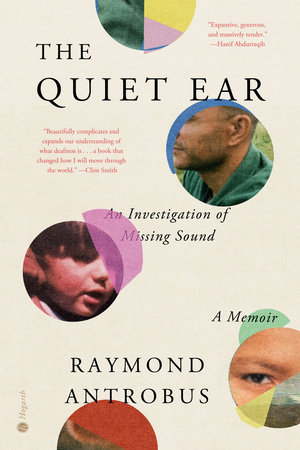
The Quiet Ear
An Investigation of Missing Sound: A Memoir
Raymond Antrobus
About the Book
“Expansive, generous, and massively tender.”—Hanif Abdurraqib, author of There’s Always This Year
“Beautifully complicates and expands our understanding of what deafness is . . . a book that changed how I will move through the world.”—Clint Smith, author of How the Word Is Passed
I live with the aid of deafness. Like poetry, it has given me an art, a history, a culture and a tradition to live through. This book charts that art in the hopes of offering a map, a mirror, a small part of a larger story.
Raymond Antrobus was first diagnosed as deaf at the age of six. He discovered he had missing sounds—bird calls, whistles, kettles, alarms. Teachers thought he was slow and disruptive, some didn’t believe he was deaf at all.
The Quiet Ear tells the story of Antrobus’s upbringing at the intersection of race and disability. Growing up in East London to an English mother and Jamaican father, educated in both mainstream and deaf schooling systems, Antrobus explores the shame of miscommunication, the joy of finding community, and shines a light on deaf education.
Throughout, Antrobus sets his story alongside those of other D/deaf cultural figures—from painters to silent film stars, poets to performers—the inspiring models of D/deaf creativity he did not have growing up. A singular, remarkable work, The Quiet Ear is a much-needed examination of deafness in the world.


